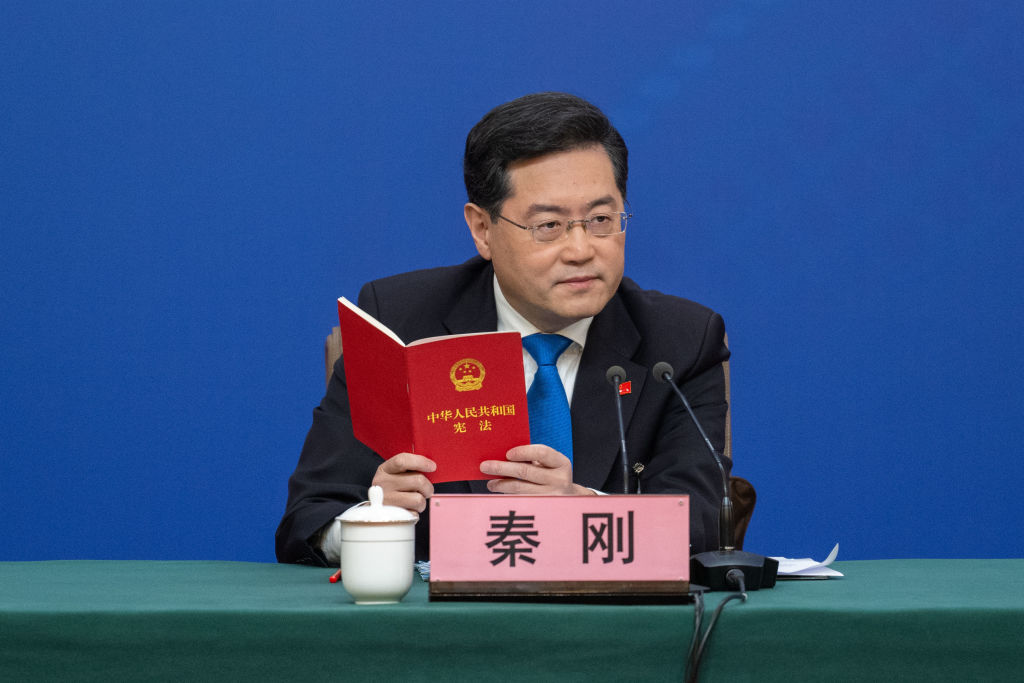China’s relationship with America is getting worse and worse. The Chinese Foreign Minister, Qin Gang, warned yesterday that ‘containment and suppression will not make America great. It will not stop the rejuvenation of China’. The Biden administration, meanwhile, recently accused China of readying to send weapons to Russia, and Americans are still fuming about the Chinese balloon that entered their airspace. China thinks they’re being hysterical.
Britain will soon be forced to decide whether it will decouple from China. The Americans no doubt want Britain to join them in cutting ties to Beijing, but it is not clear that British policymakers are ready to do this yet. In 2020, China accounted for around 7 per cent of British trade. This put it far behind the United States which accounted for around 17 per cent and the European Union which accounted for around 46 per cent. China is Britain’s fifth largest trading partner. This may make decoupling seem manageable, but this static picture is misleading.
China thinks the US is being hysterical
The current value of Britain’s trade does not matter nearly so much as future growth. In their report ‘The World in 2050’, PWC projected that China would increase from around 18 per cent of the world’s GDP in 2016 to around 20 per cent in 2050. Meanwhile, the United States would fall from 16 per cent to 12 per cent and the European Union would fall from 15 per cent to 9 per cent.
Look at the recent growth rates of exports, too. Between 2015 and 2019, British exports to China grew 14 per cent a year on average. Meanwhile, exports to the United States grew around 9 per cent, and exports to the European Union grew by only around 5 per cent a year. This makes sense. China has a lot of catching up to do, so its imports will grow at a more rapid clip. Meanwhile, Europe and America are more mature economies with more limited opportunities for growth.
Soon, China will catch up with the West. The average monthly salary in China is around $990 (£840). In the US, it’s $5,900 (£4,900). China has a population of around 1.4 billion, while the US population is around 330 million. If 1.4 billion Chinese people earning $990 a day make up 7 per cent of British trade, imagine how much of British trade they would constitute if they had American living standards. There is no reason to think that China cannot reach these living standards in the coming decades.
Another angle to the UK-China relationship is the trade deficit. It’s widely known that Britain runs ever-widening trade deficits. These are a serious problem. Not only do they drag down economic growth, but they result in depreciations of sterling that put a drag on living standards. Because of this, British real wages have barely grown at all since 2007, while real wages in other countries have increased.
Britain currently runs a trade deficit with China, but it could turn this into a surplus. Recall that between 2015 and 2019 British exports to China grew on average 14 per cent a year. By contrast, the average rate of growth of British imports from China was only 7 per cent. Half the rate. If we project these trends forward, we find that Britain could turn its trade deficit with China into a trade surplus by 2032.
Perhaps political necessity will force Britain to decouple from China, or perhaps the national security implications from a close relationship to Beijing will be judged too dangerous. But if Britain does cut ties with China, as America will no doubt try to pressure it to do, Britain will be on the outside looking in on one of the great growth stories of the coming decades. Perhaps Qin Gang is right.






Comments